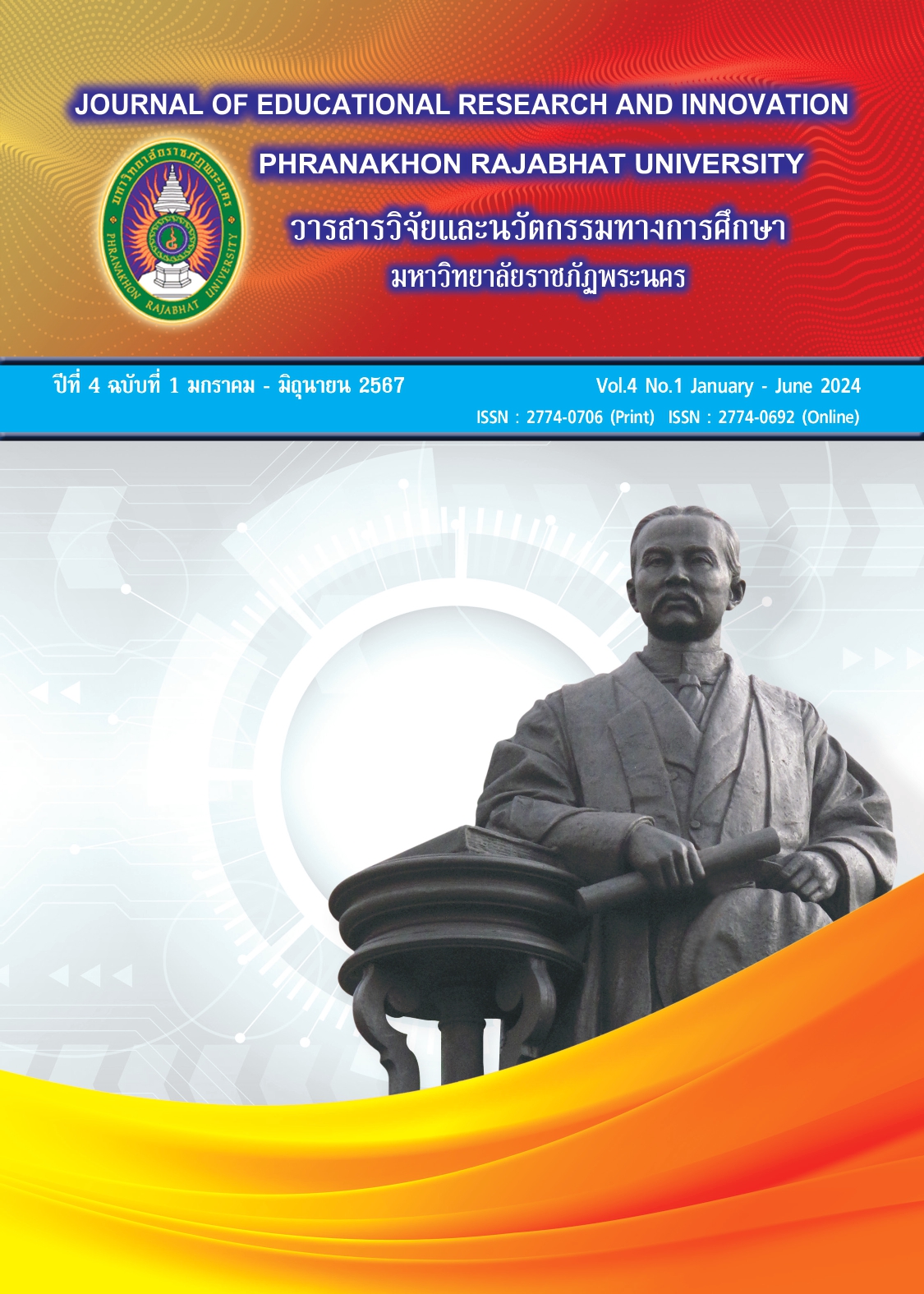การพัฒนาทักษะทางคณิตศาสตร์ด้วยการจัดกิจกรรมเสริมประสบการณ์ของเด็กปฐมวัย
Main Article Content
บทคัดย่อ
การวิจัยครั้งนี้มีวัตถุประสงค์เพื่อพัฒนาทักษะคณิตศาสตร์ของเด็กปฐมวัยที่ได้รับการจัดกิจกรรมเสริมประสบการณ์ กลุ่มตัวอย่างที่ใช้ในการวิจัย ได้แก่ นักเรียนชายหญิงที่มีอายุระหว่าง 3-4 ปี ที่กำลังศึกษาอยู่ในระดับชั้นอนุบาลปีที่ 1 ปีการศึกษา 2565 จากโรงเรียนโสมาภา เขตบึงกุ่ม จังหวัดกรุงเทพมหานคร จำนวน 21 คน ซึ่งเป็นการสุ่มตัวอย่างที่ได้จากวิธีการสุ่มแบบเฉพาะเจาะจง (Purposive Sampling) เครื่องมือที่ใช้ในการวิจัย คือ 1) แผนการจัดกิจกรรมเพื่อพัฒนาทักษะทางคณิตศาสตร์โดยใช้กิจกรรมเสริมประสบการณ์ จำนวน 8 แผน 2) แบบวัดทักษะคณิตศาสตร์ของเด็กปฐมวัย จำนวน 20 ข้อ การวิเคราะห์ข้อมูลใช้สถิติพื้นฐาน ได้แก่ ค่าเฉลี่ย ค่าส่วนเบี่ยงเบนมาตรฐาน
ผลการวิจัยพบว่านักเรียนมีคะแนนทักษะทางคณิตศาสตร์เฉลี่ยก่อนเรียนเท่ากับ 4.67 คะแนน ส่วนเบี่ยงเบนมาตรฐาน เท่ากับ 1.68 และคะแนนทักษะทางคณิตศาสตร์หลังเรียนเท่ากับ 9.23 คะแนน ส่วนเบี่ยงเบนมาตรฐานเท่ากับ 1.04 จะเห็นได้ว่า นักเรียนมีคะแนนเฉลี่ยเพิ่มขึ้น 4.56 คะแนน แสดงให้เห็นว่าการจัดการเรียนการสอนใช้กิจกรรมเสริมประสบการณ์ ช่วยให้เด็กปฐมวัยมีทักษะทางคณิตศาสตร์เพิ่มขึ้น เด็กปฐมวัยที่ได้รับการจัดกิจกรรมเสริมประสบการณ์มีทักษะคณิตศาสตร์หลังการจัดกิจกรรมสูงกว่าก่อนการจัดกิจกรรม
Article Details
เอกสารอ้างอิง
Chachpong, P. (1987). "Kindergarten, what do you teach? How do you teach?," Love you. 5(54): 112-115.
Chalermpajong, S. (2013). Effects of organizing experiences using mathematical games on basic mathematical abilities of early childhood. Master of Education Thesis. Nakhon Sawan Rajabhat University.
Chitdon, B. (1996). The importance of enriching a child's mathematical experience Primary age. Bangkok: Sukhothai Thammathirat Open University.
Deshagupta, Y. (1999). Early Childhood Education Management. Bangkok: AP Graphics Design.
Hemchakin, W. (2008). Chulalak Kindergarten Course: For children aged 3-5 years. Chulalongkorn University.
Institute for the Promotion of Teaching Science and Technology. (2010). Organizing science group learning, basic education courses. Bangkok : Institute for the Promotion of Science and Technology Teaching.
Manosityakorn, P. (2010). Basic math skills of early childhood organized experiential activities. Master of Education Dissertation (Early Childhood Education). Srinakharinwirot University.
Nilvichian, H. (1992). Early Childhood Education, Curriculum and Practice. Bangkok: Odean Store.
Office of Academic Affairs and Educational Standards. (2018). Early Childhood Education Curriculum Buddhist Era 2018. Bangkok. Printing House of the Agricultural Cooperative Assembly of Thailand
Office of the National Primary Education Commission, (1986). Communication within the school. Bangkok: The Teachers' Council of Thailand (Ladprao) Printing House.
Office of the Private Education Commission. (1988). Private school administration. Bangkok: Office of the Private Education Commission.
Thongsawat, R. et al. (1986). General administration in early childhood education institutions. In the Academic Series Organized Centers and Schools for Early Childhood Education. Nonthaburi : Department of Education, Sukhothai Thammathirat University.
Thontarn, S. (2016). Effects of organizing experiences using educational games on the mathematical abilities of early childhood. Master of Education Thesis. Nakhon Sawan Rajabhat University, Nakhon Sawan.
Vajanasawat, W. (2009). Basic math skills of early childhood with experiential activities. Master of Education Dissertation (Early Childhood Education). Srinakharinwirot University, Bangkok.
Woranan Khunsri. (2009). Learning management to develop thinking skills Academic, 12(3), 60.
White, H & Sabarwal, S. (2014). "Quasi-Experimental Design and Methods: Methodological Briefs - Impact Evaluation No. 8," Papers innpub753, Methodological Briefs.


